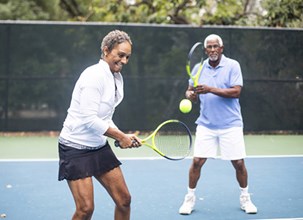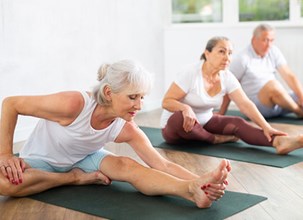What are varicose veins?
Varicose veins are dilated veins that are draining blood from your skin.
What causes varicose veins?
Varicose veins are caused by the failure of valves that allow blood to travel up against gravity from your feet all the way back up to your heart.
What are the symptoms of varicose veins?
They can be many and also none. Some people have very large varicose veins with no symptoms whatsoever. Others can have very small veins that cause a lot of itching, soreness, pain, discomfort, and cramping. The commonest first symptom or sign is swelling in the ankle.
When should I worry about varicose veins?
I think you should worry about varicose veins if your skin becomes inflamed, sore or itchy or if you bleed at all.
How can I prevent varicose veins?
Simple answer is you cannot prevent varicose veins. We don't actually know the reason why people get them in the first place. We do know that little valves fail, but we don't know why that happens.
Are varicose veins painful?
About 20% of the population have varicose veins. But normally, in my practice, I see people who have painful varicose veins. That pain can be something very minor like a small ache or it can be almost excruciating if you get any complications, such as thrombophlebitis.
How can I ease varicose vein pain?
Some people use compression stockings or even flight socks and that compression can help reduce the discomfort of varicose veins. Other people use simple analgesia such as Ibuprofen or paracetamol, which can help. Both these solutions are really only short term, though.
Are varicose veins hereditary?
For the most part, they're not. Some very young people in their early teens can get varicose veins - and that is usually genetic - but most people who get varicose veins in their twenties or thirties don't need treatment until they're in their forties or fifties. Most varicose veins are spontaneous, and no one actually knows the real cause of them. We do know the valves fail, but we're not sure if that's genetic or if it's just because we're standing all the time.
Are varicose veins dangerous?
It is unusual to have a dangerous complication associated with varicose veins. They sometimes can clot, that's a condition called thrombophlebitis. And that can be very painful. Occasionally they can bleed and that can be quite serious and quite dramatic as well. However, for the most part, varicose veins are not dangerous but they are very inconvenient.
Can varicose veins go away?
Varicose veins don't go away on their own. However, if you suffer a complication where your veins clot, this is a condition called thrombophlebitis. Sometimes they shrivel up as they heal. That is a very painful way of treating your varicose veins. And I wouldn't recommend it.
How do I get rid of varicose veins?
There are many different ways of treating varicose veins. You may well be aware of the older treatment where patients had a general anaesthetic and had cuts in their legs and veins removed by a treatment called stripping. That really is old fashioned and has been superseded by treatments where we thread small wires or lasers up the inside of the vein and deliver heat. That heat causes the vein to shrivel up and it does away with the need for pulling veins out.
How long do I need off work after varicose vein surgery?
Many people take a few days off. I would say that after varicose vein surgery, it feels like you have run a few kilometres or played your first football match of the year. I think it feels a little like a pulled muscle. And whilst you're able to work from home the following day, I think commuting can be a little bit difficult. So, I would normally recommend that people have a light week, the first week following surgery, the second week is usually much better. And normally by the third week people are back in the gym and back to normal activity.
How should I sleep after varicose vein surgery?
You can really sleep whatever way you wish. Most people go back to their normal bed and sleep in their normal position.















